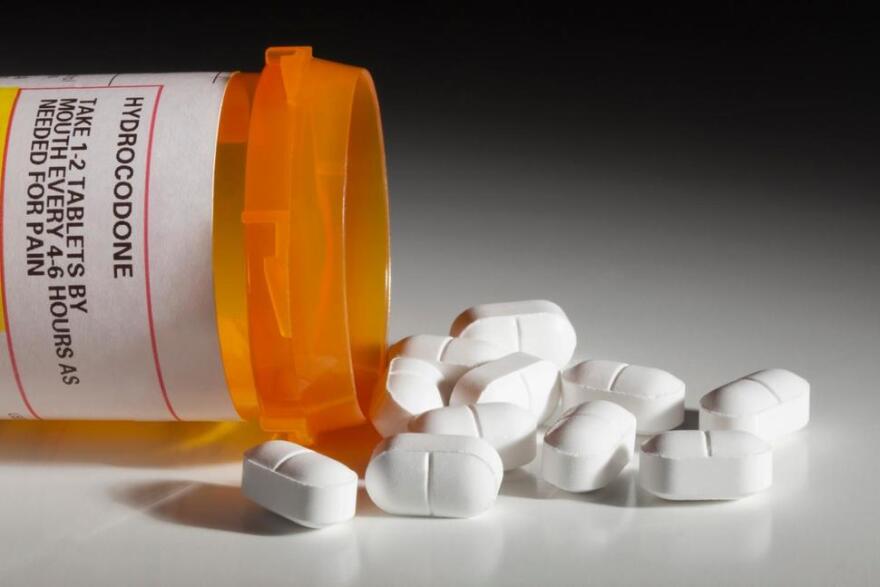As the opioid crisis continues to affect millions of Americans, researchers are working to counteract addiction more effectively.
"Take Care" spoke with Dr. Richard Rawson, a professor at the Vermont Center on Behavior and Health at the University of Vermont and professor emeritus at UCLA School of Medicine, about his research and possible solutions to multiple forms of drug addiction.
Rawson explained that addiction has only recently been viewed as something treatable using scientific medical techniques.
“In the early part of the 20th century, addiction was really viewed mainly as immoral, illegal behavior…that should be treated by punishing it and by sanctioning people,” Rawson said.
New research has allowed scientists to discover the actual foundation of addiction, which Rawson said has a lot to do with DNA and use history.
“Different people, because of their genetics, because of their early history, have different vulnerabilities to addiction,” Rawson said. “But, no matter who you are or what your genetics are, if you use drugs in a chronic enough way, you’ll get addicted.”
Rawson said this disparity yet commonality is because all drug addictions cause changes in brain chemistry. Also, as much as genetics can impact how easily someone can become addicted to a drug, Rawson said this does not equate to the misconception about some individuals possessing an addictive personality.
“The whole concept of personality as an explanatory concept really has become far less useful,” Rawson said. “We have much better markers of brain changes, genetic underpinnings, neural biology and all of those kinds of factors that we can really measure better and give us much better predictive data.”
Opioid addiction, Rawson said, is a profound addiction that has to be treated differently than many other drug addictions because of the unique way the drug affects the brain.
“Opioids are a special category insofar as they mimic brain chemistry that we have naturally,” Rawson said.
Opioids are very similar chemically to the endorphins the human body releases as a natural pain killer. This makes the drug particularly hard to detect and the user harder to treat effectively.
Rawson said the opioid crisis as it exists right now is largely a result of a movement in the late ‘90s to actively treat those with high amounts of pain using powerful painkillers. The misbelief was that, as long as these strong drugs, like opioids, were only used by people who had chronic or terrible pain, they would not be susceptible to possible addiction.
“That’s where we started to see buckets and bucket loads of drugs like Vicodin and OxyContin and others being pumped out into the community with very little concern about addiction because of this belief,” Rawson said. “That was a huge mistake, and that’s been the genesis of the current opioid epidemic.”
Because of the current state of the crisis, medical professionals in Rawson’s home state of Vermont have been working to create more viable treatments.
“The whole concept of personality as an explanatory concept really has become far less useful."
Less than a decade ago, Vermont's director of public health, governor and head of the Medicaid office made a decision to take a public health approach to opioid addiction. They made a large effort to expand access to medication-assisted treatment, and Rawson said that has made all the difference in the state.
Rawson said he has faced criticism from some who argue that treating opioid addiction using medication is like fighting fire with fire. He said the medicines used to treat opioid addiction are provided to patients under controlled, monitored conditions and are not nearly as easy to abuse.
“The use of these other medicines to allow people to not be in withdrawal, to function effectively and to have normal, productive lives…makes that whole issue of giving people a drug to treat a drug…irrelevant and completely unhelpful in addressing the epidemic,” Rawson said.
The most important thing when it comes to opioid addiction, Rawson said, is for the user to get in contact with a healthcare professional who can have them assessed and get them on medication-assisted treatment as quickly as possible. If treatment is delayed, Rawson said that can easily lead to people overdosing in the meantime.
Rawson said it is very important for a person addicted to opioids to not seek treatment at a drug rehabilitation facility that does not specialize in opioid addiction.
“If you go into a rehab, they withdraw you from opioids, give you some counseling sessions and the like and then discharge you onto the street,” Rawson said. “Your tolerance for opioids has dropped dramatically. If you relapse, that first dose of drugs can be fatal.”
Unfortunately, as dangerous as this model is, this treatment continues to be used in rehab centers around the country, Rawson said. This is why it is so vital to counteract misinformation and help those affected by this crisis get the treatment they need, Rawson said.






